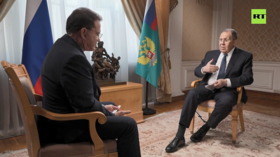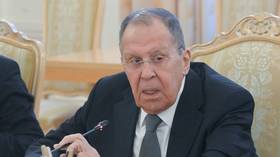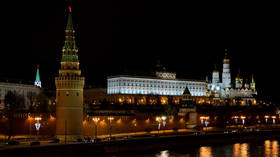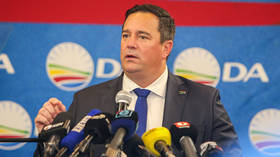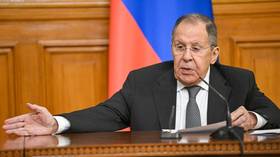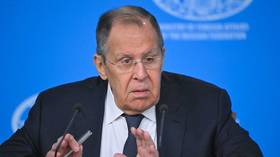Russia making great strides in Tobacco control, must do more – expert
As tough anti-smoking laws begin to be felt by tobacco users in Russia, the head secretariat of the UN Treaty on Tobacco Control convening in Moscow, Dr Vera Luiza da Costa e Silva, tells RT more must be done to denormalize tobacco consumption in Russia.
RT:As Moscow hosts the 6th session of the Conference of the parties to the UN Treaty on Tobacco Control, we are joined by the new head of the Treaty Secretariat, Dr. Vera da Costa e Silva. First of all, on the international scale, what is being done in terms of tobacco control?
Dr Vera Luiza da Costa e Silva: Almost 180 parties of the Treaty are implementing measures to protect exposure to tobacco smoke, inform populations about health damages and economic damages of tobacco, increasing taxes and prices, promoting pictorial health warnings on cigarette packages, and just addressing the issue of contraband cigarettes, working on measures for alternative livelihoods to tobacco farmers, and addressing issues of liability of the tobacco industry — all of that with a cross-cutting aspect not to allow the interference of the tobacco industry in tobacco control measures and public health.
RT:There is a framework of tax hikes. But it’s only in the form of recommendations. Is there a way for these recommendations to become obligatory?
DVCS: The provision of the Treaty on rises on tobacco prices and taxes is a legally binding provision. The guidelines provide potential ways for the parties to address this provision. In fact, the parties to the Treaty — and Russia is one of the parties to the Treaty — are legally bound to increase taxes and prices and to have this policy as part of the tobacco control policy.
RT:So there is a mutual desire among the parties?
DVCS: Yes. In fact, you have a provision that says that you should establish a policy of raising taxes and prices in order to reduce consumption, and the guidelines bring you the elements and strategies that you can use in order to increase taxes and prices.
RT:In Russia, there is a big problem with counterfeit tobacco. Would you say there is a possibility that tax hikes and the increasing of prices would actually lead to more counterfeit tobacco on the market?
DVCS: Not at all. This is an argument from the tobacco industry, and the tobacco industry uses this argument for every single tobacco control measure that governments want to put in place. What the reality demonstrates is that the parties can increase taxes and prices without any increase in illicit trade. Illicit trade has many other factors at stake, like corruption, criminal activities and porous borders. Illicit trade does not follow an increase in taxes and prices. Increases in taxes and prices are absolutely important because they are one of the most effective measures to reduce consumption. Everybody is very worried about how to spend money. So there is some pressure from the point of view of having to pay more for the product that impacts on the decision of buying the product and consuming it. This is real for every single commodity, but in the case of tobacco it’s a very important policy because it drastically reduces consumption in a very short time. The approval of these guidelines was one of the most important outcomes of these conferences.
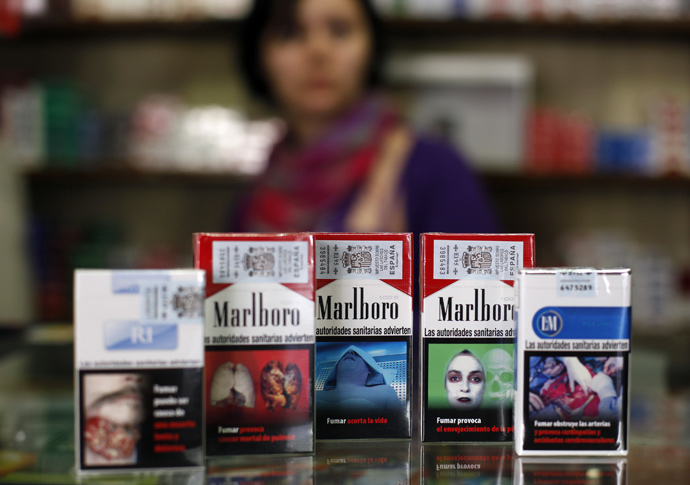
RT:Let’s talk about Russia a little bit. It always used to somewhat lag behind the West in terms of tobacco control. Now there is a massive anti-tobacco campaign going on at the government level. Would you say we’re catching up now?
DVCS: Yes, definitely. Russia is making huge development in a number of areas of the Treaty and is providing leadership to countries in this region on how to address the tobacco epidemic. There has been some indication that the prevalence of tobacco users is being reduced. The lack of regulation that you had in place is now in the process of being enforced. So, we anticipate to see more reduction in consumption. What is more important at this point is I think is to denormalize tobacco use, as part of the Russian social context, so that the Russian people see using tobacco, smoking, not as a social idea of consumption but rather as something that is really not appropriate, or interesting to do, and apart from this is unhealthy. The money you use to buy tobacco, you can use it to buy something else. You can buy food, you can buy education, you can treat people from the family, you can use it for other leisure activities, whatever. I think these are very important measures that are being taken by the government of Russia, and they are very much welcomed by the international community.
RT:The prices for cigarettes in Russia are still relatively low compared to the rest of the world, especially the West. Do you think the government can get more involved here, in that sphere?
DVCS: I believe, the answer would be yes. There’s always room for improvement. I’m sure that the Ministry of Finance and other branches of government that are responsible for this specific issue would contribute enormously to the health of the Russians, if further increases of taxes and prices are taken into consideration.
RT:I understand that major tobacco producers were left out of the international conference, but still there’s a major influence that they have on governments, isn’t there?
DVCS: It depends on what you mean by major tobacco producers. Do you mean major tobacco producing countries or major tobacco companies?
RT:I mean companies and corporations.
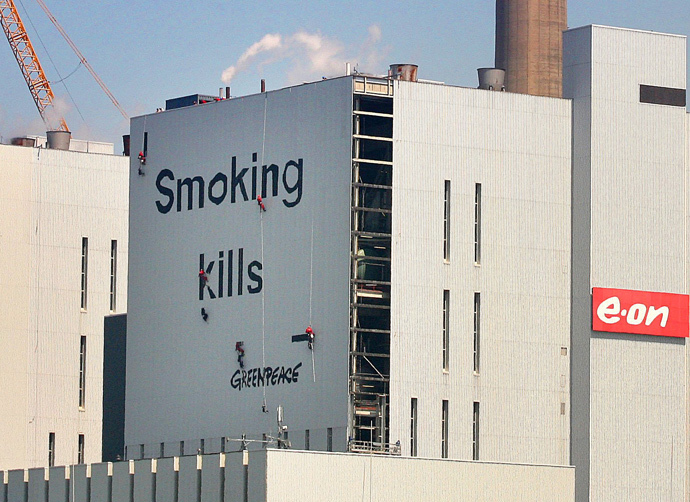
DVCS: There’s one provision of the treaty, namely Article 5.3, that explicitly addresses the issue of the governments’ rights to protect public health policies from the influence of the tobacco industry. And this is something that parties have looked into very carefully and there was a lot of commitment and, of course, you cannot discuss how to deal with the chickens when you have the wolf participating in the discussion because the wolf is going to eat the chickens, and there will be no further discussion. This is a good example of how the tobacco industry would influence the process. We have the information that the tobacco industry is actively lobbying many governments around the world in order not to increase taxes and prices, in order to water down tobacco control policies, in order to just create junk science coming up with arguments that hinder government actions to curb the epidemic. And governments must take a stand on this. So this is something that is not only part of the discussion of the treaty, but also something that should crosscut every single activity of the health sector of the government in terms of tobacco control.
RT:Here’s another question. The global anti-tobacco campaign is in full swing, yet we are seeing more and more governments lifting the ban on soft drugs. Doesn’t that sort of contradict the whole meaning of fighting tobacco, and, well, that just leads to soft drugs.
DVCS: Well, I think that this is a broader discussion that brings into it legality and illegality of drugs. And I could say that this is something much more complex to be addressed. But I don't think that in any case addressing tobacco control policy as a public health priority is contradictory with the current policies of different countries in regard to other drugs, to soft drugs like you say. What we have is a drug that's the highest consumed drug in the world that kills one in every two users and has all the legal framework to be promoted, to be marketed, and with an industry that uses all sorts of legal actions, trade agreements to just improve their profits at the cost of the health of the people, at the cost of the government's budget for the health sector to treat people who suffer from tobacco-related diseases and at the cost of other sorts of benefits that the population could have if tobacco were not used the way it's used. And at the end of the day there is no healthy use, no use of tobacco products that could be justifiable. It's a drug, and it was a mistake of the society back when the use of tobacco started just to go along with it and to address it in the same way you address any other sort of goods because it's not a common commodity. It's a very special commodity that creates addiction and that kills users.
RT:Finally, the United States and Canada refused to send their delegations to the conference. How often does politics get in the way of your activities?
DVCS: First, the United States is not a party to the Framework Convention on Tobacco Control so they might or might not participate as observers. Canada just didn't send the delegation, but this is within their rights of not participating on a given meeting so I don't see this as being any problem because Canada is very active in promoting tobacco control, and in supporting the implementation of the Framework Convention on Tobacco Control.
The statements, views and opinions expressed in this column are solely those of the author and do not necessarily represent those of RT.


